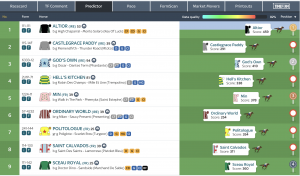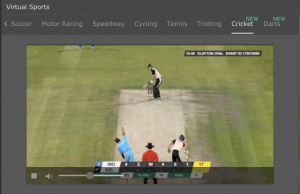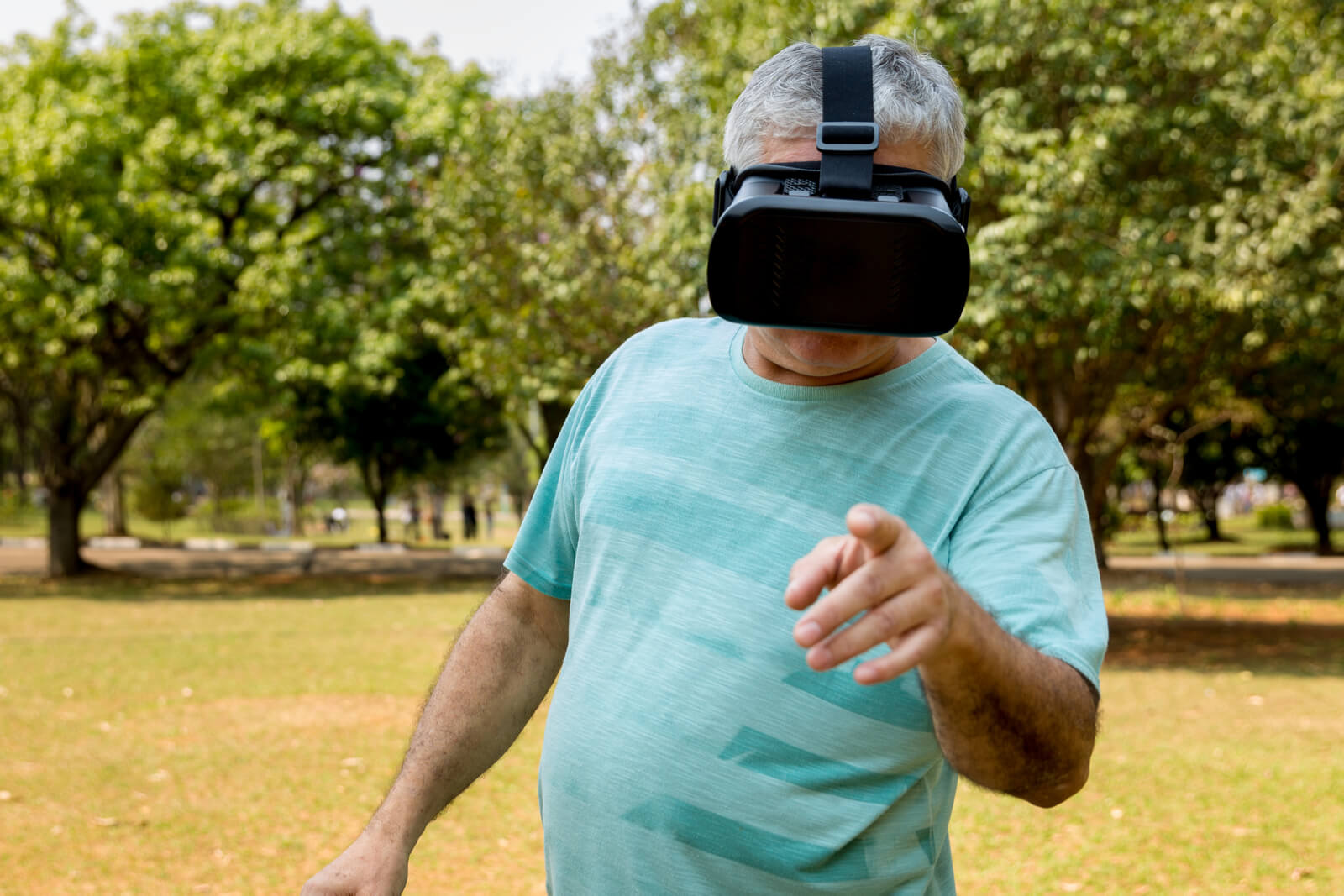We all know that the Virtual Sports industry is in rude health and that the  likelihood is that over the next few years, we are going to see a further increase in the number of people betting on Virtual Sports and also in the number of Virtual Sports available for people to play.
likelihood is that over the next few years, we are going to see a further increase in the number of people betting on Virtual Sports and also in the number of Virtual Sports available for people to play.
However, given that Virtual Sports operates based on simulation, in that it simulates the outcome of a certain sporting event for the purposes of generating results on markets that punters will bet on, could that technology be the basis for a new era of services for punters?
What do we mean by that? Well we know that Virtual Sports operate by defining a set of parameters for the team or individual competing. They may be handicapped one way or another to try and produce an imbalance between competitors, which means a range of odds can be offered against markets which will appeal more to punters seeking value bets.
We also know that the Virtual Sport then uses this data, along with a heavy influence of randomness, to decide the winner of that event.
However, with just a couple of relatively small adaptations, could it be possible to use some Virtual Sports as the basis of a prediction tool for punters to use when considering making a bet? Where they can run through a number of scenarios for their chosen sport, with the aim of trying to get a relatively accurate depiction of how a real life sporting event could pan out?
It may sound far-fetched but there are already some examples, using technology similar to that in Virtual Sports, that are available for punters to use today.
An example of this is At The Races Racing Predictor service.
At The Racing Predictor
At the popular horseracing site in the UK, At The Racing, there is a service  there which allows you to view a race taking place that day. The predictor then uses a number of different data sources, such as the horses form, its previous runs on this course, its ratings, the skills of the jockey and trainer and it then rates each of the competitors.
there which allows you to view a race taking place that day. The predictor then uses a number of different data sources, such as the horses form, its previous runs on this course, its ratings, the skills of the jockey and trainer and it then rates each of the competitors.
The runners in that race are then displayed and ranked with their score shown. The higher the score, the higher the chances the horse has of winning the race according to the programming and this is displayed by showing all horses competing with the winner displayed closest to the finish line. It is easy to then look down the list of runners and see where each runner is predicted to come.
This is not the only race predictor software. They are available across a number of different sites.
How would Virtual Sports be adapted to become a predictive tool?
Given that Virtual Sports operate using their own sets of data, which are designed to generate results for betting purposes alone, it is theoretically feasible therefore that you could adopt Virtual Sports so that the data it used to decide the result of a race or sporting event could be based on real life sporting data.
So for Virtual Horseracing for example, you would be able to enter in specific data for each of the runners in a race (or this data could be automatically looked up online from any one of the major data sources for horseracing available). The Virtual Sports software would then simulate the race based on this real world data and produce a result, which is the prediction of how the race could pan out.
In addition, the software, rather than producing a static result as shown in the screenshot of the At The Races Predictor, the software could also show the race and how it could finish, so you would be able to get a full prediction of how the race goes from start to finish.
What are the key issues?
If Virtual Sports technology was to be adapted to provide punters with a tool to use to predict races, then the key issue to consider would be the data. For some events, particularly horse racing, the data is readily available and could well be sourced automatically online, without anything required of the player to add anything extra.
use to predict races, then the key issue to consider would be the data. For some events, particularly horse racing, the data is readily available and could well be sourced automatically online, without anything required of the player to add anything extra.
However, if you were to expand the prediction tools across more Virtual Sports, such as into Virtual Soccer, then there are a number of other parameters to be considered here and it would depend how accurate you would hope the prediction tool would be as to how much data you would want to put in for each of the competing teams.
For example, would you go beyond the basic information for each team to try and get a more accurate prediction? Would customers be willing to enter in, for example, a number of different possible line-ups for each team, different referees or weather conditions, to see how this affects the predicted result, or would such an endeavour be too time consuming and impractical?
This is a key issue to consider as while Virtual Sports could be adapted to be used as a prediction tool, it would only be viable if the end user was able to access this prediction tool and then use it without having to add masses and masses of data themselves before they could use it.
That said, I think it would be very beneficial if the user was able to edit some of the data within the predictor to see the different results the changes in the data could produce. For example, if you were looking to get a prediction on a football game, it would be beneficial if a customer could alter the line up and formation of the team to simulate different set ups and look at potentially different outcomes for the game with this different data.
How accurate would the predictors be?
Of course, a predictor, even one based on Virtual Sports, is never going to be 100% accurate, or even anywhere close to that number. However, it would be beneficial for a customer to have the option open to them so they can run some different data and see how this influences the result. If the data tends to show one team winning or one result being the outcome, then this would likely make the punter feel more comfortable backing that.
100% accurate, or even anywhere close to that number. However, it would be beneficial for a customer to have the option open to them so they can run some different data and see how this influences the result. If the data tends to show one team winning or one result being the outcome, then this would likely make the punter feel more comfortable backing that.
Such an adaptation is feasible given the technology available for Virtual Sports and it may well appeal to many punters. It is going to be interesting to see whether any sports betting sites decide to try and utilise Virtual Sports technology in other ways across its site.
